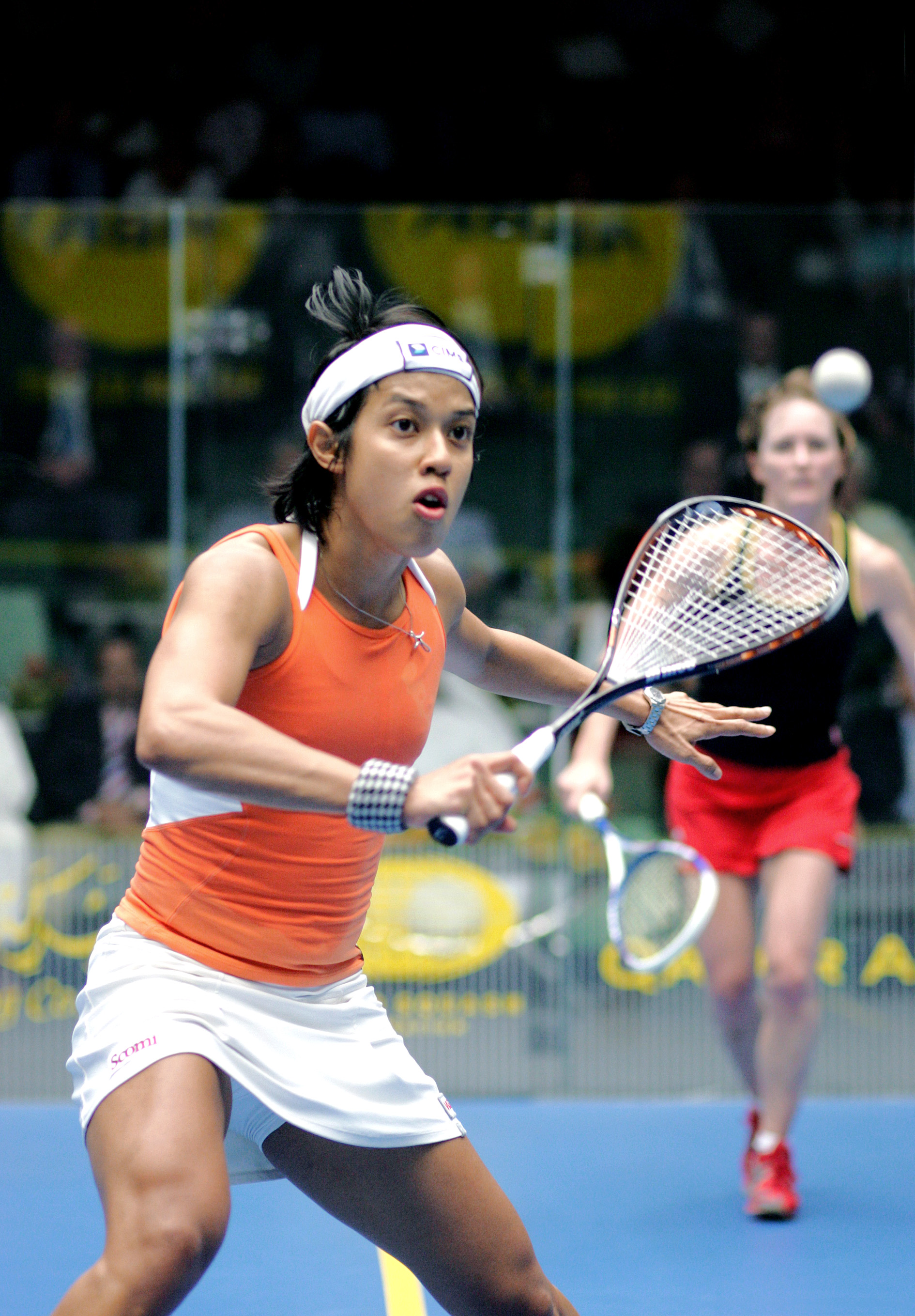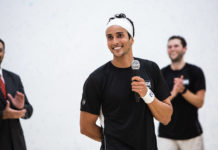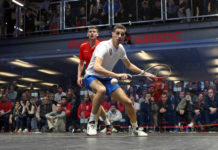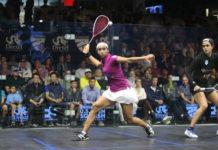By Colin McQuillan
Ramy Ashour, the teenage sensation from Egypt, won his third PSA title since leaving the junior ranks with a 66-minute (8), 9, 9, 6, win over David Palmer, the World Open Champion from Australia, in the final of the Qatar Squash Classic in Doha, while Nicol David of Malaysia won her 10th successive WISPA title with a 69-minute 7, (2), 7, 2, victory over Australia’s Natalie Grinham.
Ashour downed the World Champion for a third time, beating British Open Champion Nick Matthew, Canary Wharf Champion James Willstrop and the combative Anthony Ricketts on the way. The previous week he added World No. 1 Amr Shabana to his list of victims when he won the richest tournament of the year in Kuwait City as the fourth seed.
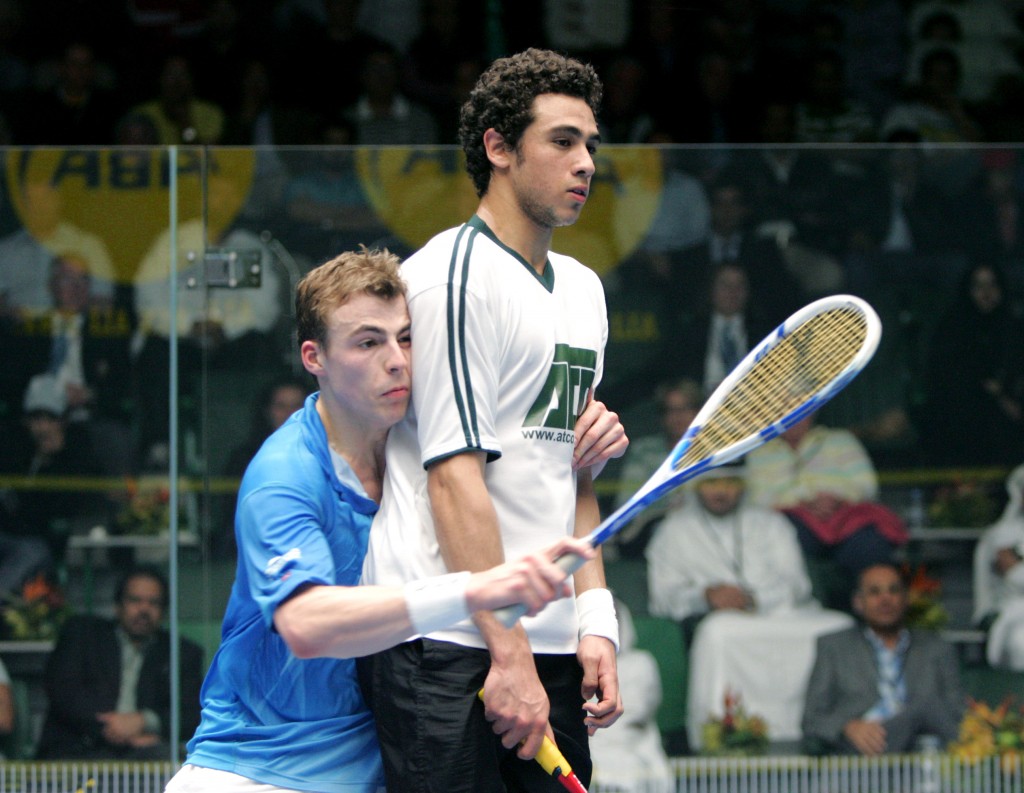
“I didn‘t think anyone could win these two tournaments back to back, but he’s proved me wrong. He‘s a great player,” said Palmer.

David’s win was her fourth over the Amsterdam based Australian in as many months and her 48th match win in a row since losing to the same opponent in the Commonwealth Games semifinals last year in Melbourne. The previous week in Kuwait she won the final 3-1 in 93 minutes.
“It took me a while to find my rhythm and my length,” David admitted. “But I gradually got control back in patches and was able to take the third game from 5-7 down. By the fourth game I was in full charge.”
Ashour also lost his way somewhat in the first game when leading 8-6, and he was down 8-9 in the second before an extended moment of self-contemplation with his head pressed hard into the right hand wall, followed by a change of racquet, brought him the mindset to pursue complete victory. It was only later that we discovered he had actually changed to a couple of racquets borrowed from Rachael Grinham, who plays with the same model but has them strung for her softer paced game.
With this unfamiliar weapon he hit a nick shot into the top right corner, another into the deep left corner and then a fearsome straight kill to take the game from 8-9. By halfway through the fourth game Palmer was beginning to smile in a way that suggested he would settle for merely being part of another astonishing performance by the Egyptian 19-year-old. He held 6-7 but from there Ashour hit a backhand straight nick, a forehand volley drop into the top right nick, an overhead forehand kill and a backhand lift across the face of the front wall into the top right nick….job done!
“I’m so proud to have won these two tournaments,” said a beaming Ashour afterwards. “When you go on court for the 14th day and it’s your second final in that two weeks, you feel a bit loose. You have to search for the motivation to win.”
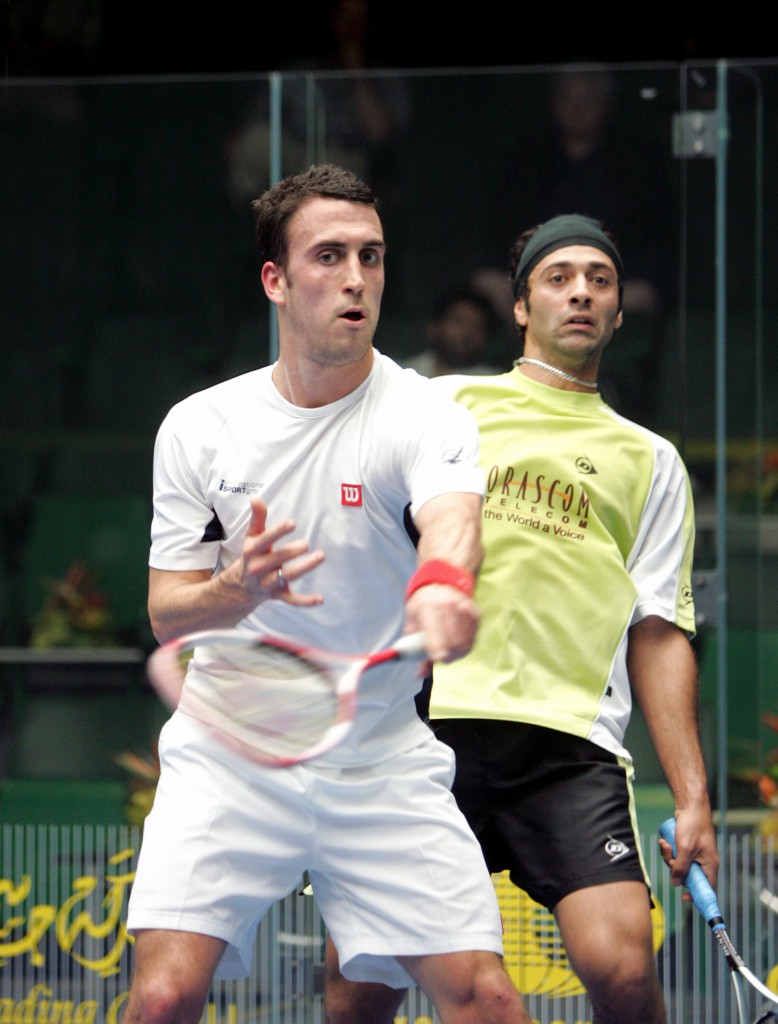
This boy has very little fear. He produces powerful attacks from situations other players would be content to cover in a retrieval mode; he fires at the nick with genuine force from almost no racquet preparation; his court coverage is nothing short of extraordinary.
Both Jahangir Khan and Geoff Hunt were watching the Qatar final. Khan thought the boy was almost certain World Champion material. “Strong wrists, fast thinking, great movement and only 19. He must go on to greater things,” the WSF President insisted. “His emergence is great for the game and, if he stays uninjured, he could be around for a long time.”
Hunt, who is now coaching the Qatar national squads, was a little more restrained. “He is a fantastic prospect,” he said. “There is much about him that is still boyish and the old pros will probably work him out given enough of a view of him. On the other hand he is learning all the time himself so they may have to be quick about it. He does rather daft things at the moment. I was surprised that he went on for the warm up tonight with his shoelaces still untied. Presumably he had not bothered to warm up much. If he survives the adoration that goes with success in this part of the world and gets himself properly fit, they may have increasing problems with him.”
For what it is worth, the combined memories of the squash writers and photographers present in Doha had to travel back to Qamar Zaman to find such confidence, skill, speed and careful rapture in a single player.
The Egyptians also had Wael El Hindi in the Qatar semifinals, although they lost Amr Shabana to a career best performance from England’s Peter Barker in the quarterfinals. The English lost James Willstrop to a pallid quarterfinal performance against Ashour, but Matthew’s brilliant effort against the Egyptian youngster after extended injury problems more than compensated.
“I was pleased with my game,” the British Open Champion said after the 82-minute (6), 9,7 (10) [0-2], 8, semifinal. “If I can keep improving my movement to something like that of Peter Nicol and concentrate on sharpening my front court attack, I think I can stop this boy before he becomes a legend.”


